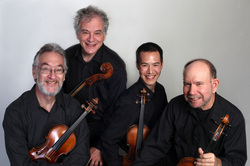
This hall is a nice size for chamber music, but the acoustic is dry. In this unforgiving environment all is laid bare, and it’s possible to hear everything that’s going on inside a string quartet.
| Dr. Colin Eatock, composer |
|
 The Juilliard Quartet, in its latest incarnation. As a non-driver, I don’t often venture into suburban realms beyond the northern border of Toronto. But I was up that way on Wednesday night, to hear the Juilliard Quartet at the Markham Theatre play works by Hadyn, Martino and Beethoven. This hall is a nice size for chamber music, but the acoustic is dry. In this unforgiving environment all is laid bare, and it’s possible to hear everything that’s going on inside a string quartet.
0 Comments
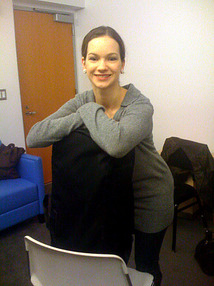 Hahn and her tweeting violin case. My recent interview with Hilary Hahn appeared in today’s Houston Chronicle. At 32, violinist Hilary Hahn is well established as one of America’s leading classical musicians. Many big debuts are behind her – with major orchestras in New York, Philadelphia, Boston, London, Paris, Berlin, Vienna, Tokyo and other cities. And she already has about 20 CDs to her name. As well, most critics agree that she has something special to offer. The Wall Street Journal has praised her “warm tone, stunning technique and flawless intonation.” And the Times of London recently declared, “Hilary Hahn is carving out an increasingly distinctive voice for herself in a world currently overcrowded with exceptional young violinists.” 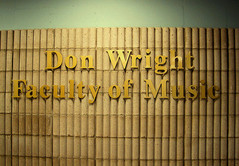 Is this the best we can do? Now here’s a subject I’ve ranted about before, and will probably rant about again: the naming of concert halls. We read, via the ever-informative Norman Lebrecht, that the Sydney Opera House’s main auditorium will be renamed in honour of the celebrated Australian soprano Joan Sutherland. Our correspondent is livid about this, pointing out that the hall is a klunker and unworthy of the Great Dame’s name. (You can find his outrage here.) 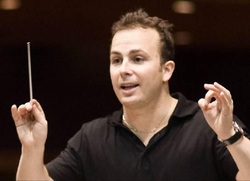 On top of the world at 37. I just got back to Toronto, having spent a very pleasant weekend in Montreal. I saw some friends and heard some music, but the main purpose of my trip was to interview Yannick Nézet-Séguin. In case you don’t know – and if you don’t, I must wonder what planet you’ve been living on for the last few years – Nézet-Séguin is the fast-tracking Canadian maestro who currently leads the Orchestre Métropolitain du Grand Montréal and the Rotterdam Philharmonic, and is also principal guest conductor of the London Philharmonic. Just in case all of that is not enough, in September he’ll be taking up the position of music director of the Philadelphia Orchestra. And he’s only 37. 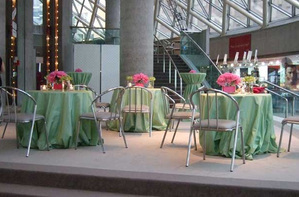 The RTH lobby is good for some things, but not others. The Toronto Symphony Orchestra’s eighth annual New Creations Festival has come and gone. The featured composer, Peter Eotvos, will never be a favourite of mine (see my review of Saturday’s concert here), but he represents a school of musical thought that holds a prominent place in post-WWII music. As such, he was a suitable choice by the TSO. This year’s New Creations Festival featured three orchestral concerts – and if my memory serves me well, so did the first NCF, and so have all the rest. Where new music is concerned, the TSO seems to be saying, “We will do this much, and no more.”  John Beckwith's new book. Toronto’s big musical events occur in the evening, or possibly on a Sunday afternoon. But weekday afternoons can hold special charms all their own – inviting anyone who can escape the nine-to-five grind down intriguing musical roads less traveled. Today was such a day. At noon, I joined several hundred people in the Richard Bradshaw Amphitheatre (at the Four Seasons Centre) for a vocal recital. These aren’t uncommon on a weekday afternoon on the Canadian Opera Company’s home turf. But this short program marked the launch of a new initiative: the Canadian Art Song Project. 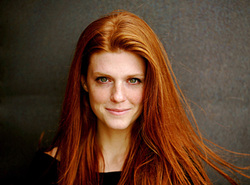 Canadian mezzo Wallis Giunta. Here’s a review I wrote for today’s Globe and Mail newspaper of a recital I attended on Thursday. Wallis Giunta is a rapidly rising Canadian singer with an interest in new and unusual repertoire. For the last few years, the Canadian singer-songwriter Rufus Wainwright has been trying to establish his bona fides as a classical composer. In this, he faces quite a challenge, as popular musicians are rarely welcomed into the classical fold with open arms. On the contrary, there might as well be armed guards patrolling the border. 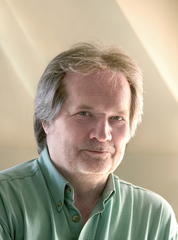 Composer-conductor Peter Eotvos. The composer-conductor Peter Eotvos is currently in Toronto. Here’s my interview with him, from today’s Globe and Mail newspaper. Musical modernism made a bold statement in the postwar decades. To this end, many composers of the 1950s, 60s and 70s broke from the past, creating an angular, dissonant kind of music that stood in direct opposition to the traditions of earlier times. These were heady times for a young Hungarian named Peter Eotvos – talented both as a composer and a conductor. When the Moscow Conservatory rejected him for advanced musical studies, he applied to Germany. In 1966 he headed for Cologne, the epicentre of all that was avant-garde in European music. |
Eatock Daily
I'm a composer based in Toronto – and this is my classical music blog, Eatock Daily. Archives
May 2024
Index
Click here for an alphabetical list of blog entries.
|